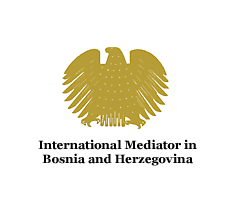TRIP REPORT 2002-5 - 28 OCTOBER-2 NOVEMBER 2002
IntroductionIn the post election period the political climate in Bosnia and Herzegovina was highly charged with political posturing and coalition building. International media attention was focused mainly on the fact that nationalist parties had overwhelmingly won the elections; and there was speculation that the "reform-minded" parties would not be able to muster the necessary parliamentary votes to remain in power. Moreover, there were various interpretations as to what it would mean for Bosnia if the nationalist parties would regain power. The US government's announcement that it would not work with the nationalist parties also left much insecurity both locally and internationally. Nevertheless, the election results are part of the consequences that all democratically elected government must deal with. In this respect the main issue should not be which parties will form the government but what will the parties do once they are in power.
The High Representative, Lord Ashdown, has made it clear that regardless of which parties are in power, the year 2003 must be decisive for Bosnia and Herzegovina. There are a series of fundamental reforms that the new government will have to address if it is to gain credibility with the international community. There needs to be legal, judicial and economic reforms immediately, and the revenue system and education sectors need substantial changes. It cannot be emphasised enough that without these reforms, investor will not be attracted to Bosnia and Herzegovina and donor countries will probably downgrade Bosnia as priority. Given the fact that there is extensive donor fatigue in the international community, Bosnia's only chance to integrate itself into Europe and the international community is to act quickly to implement the reform agenda set out by the High Representative. Along these lines, the Mediator called on the political parties to make the year 2003 the "Year of Reform".
On this trip the Mediator focused on the municipalities of Srebrenica and Bratunac, which have not been able to shake lose their image of hard-line areas. Since the end of the war, both municipalities were governed by hardliners that refused to accept the new principles of the Dayton Peace Accord and returns were obstructed. Until 1999 there were almost no returns to the area. As a consequence there had been a funding embargo, and the municipalities remained isolated. However, there have been important changes in both municipalities. They are far from perfect and cannot be considered models of the return process, but they are breakthroughs in terms of their past behaviour. There are also signs that returnees are returning and the local authorities are working with their counterparts to improve the situation. According to the local international community representatives, municipal authorities and the returnee leaders, the return climate is changing for the better and the two sides are working closely to bring these municipalities out of economic and social devastation. Moreover, they are in schedule to finish the property law implementation at the same time as most municipalities in Bosnia and Herzegovina.

